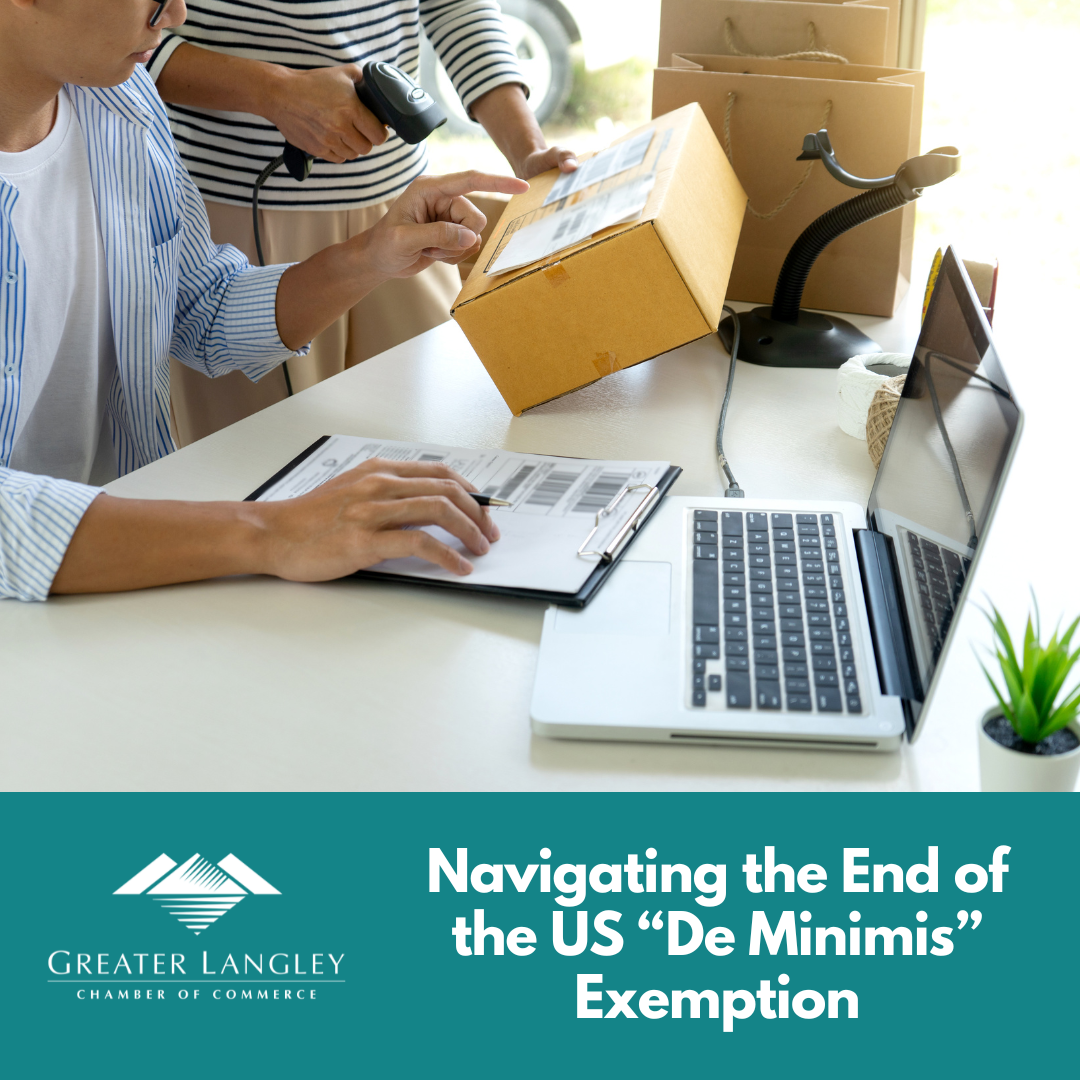Navigating the End of the US “De Minimis” Exemption — What Langley Businesses Should Know
Navigating the End of the US “De Minimis” Exemption — What Langley Businesses Should Know

What's Changing — And When?
Starting 12:01 a.m. Eastern Time on August 29, 2025, the U.S. will eliminate the longstanding de minimis exemption, which allowed low-value shipments (under US $800 per person per day) to enter the country duty-free with minimal customs procedures. This move applies globally, affecting all countries, including Canada and Mexico. China and Hong Kong already lost this privilege earlier in 2025.
With the de minimis exemption ending, every shipment from Canada into the United States will now be treated like a regular import, no matter its value. That means each parcel will need a full customs declaration and will be assessed the applicable U.S. tariff or duty rate based on its product category. Instead of small, low-value orders moving across the border duty-free, even a single $25 item will now face duties, brokerage fees, and clearance costs as if it were a large commercial shipment.
All U.S.-bound shipments must have duties collected and paid at origin now. This means every package under US$800 going from Canada to the U.S. must have proof that duties were paid before the shipment can be accepted for delivery. This proof comes in the form of a Declaration ID – a 13-character code that confirms duties have been secured.
Why It Matters to Langley Businesses
For many Canadian e-commerce and export companies, leveraging the de minimis exemption was key to staying cost-competitive. Its elimination means:
- Higher prices due to newly imposed tariffs and duties.
- Greater compliance burden, needing accurate customs documentation, classification, and possibly customs bonds.
- Disruption of existing fulfillment models, especially for small, direct-to-consumer shipments.
Strategies to Reduce the Cost Impact
Langley businesses can adapt by:
- Consolidating shipments into larger bulk orders to reduce per-package fees and handling costs.
- Using U.S.-based warehousing or fulfillment partners to pre-position inventory and ship domestically within the U.S.
- Reviewing tariff codes (HTS classifications) carefully to ensure accurate rates and avoid overpayment.
- Reassessing fulfillment models, including shifting from direct-to-consumer to wholesale or distributor networks.
- Adjusting pricing and customer communication to balance competitiveness with transparency about new costs
- Explore CUSMA compliance with your shipper/courier as those goods should be tariff free if using a shipper. However, CUSMA-compliant goods are not exempt for postal shipments. All postal shipments pay the tariff rate regardless of CUSMA qualification. The importer of record is the party that claims CUSMA preferential treatment with US Customs. In direct-to-consumer e-commerce the seller/exporter (you in Canada) often arranges shipping with a courier who then acts as the importer of record on behalf of the consumer so it should be explored with them.
What is the Langley Chamber doing?
The Langley Chamber knows this is yet another disruption to trade and potentially a significant hit to small businesses, ecommerce retailers and others who relied on the de minimis rules previously. We are advocating directly with the federal government ourselves, and through the Canadian Chamber of Commerce, for de minimis to be part of the ongoing trade discussions.
